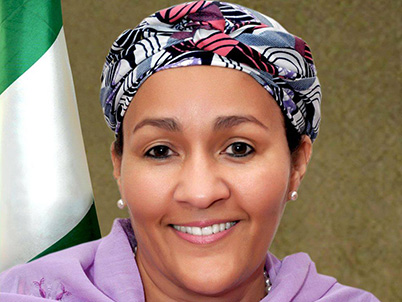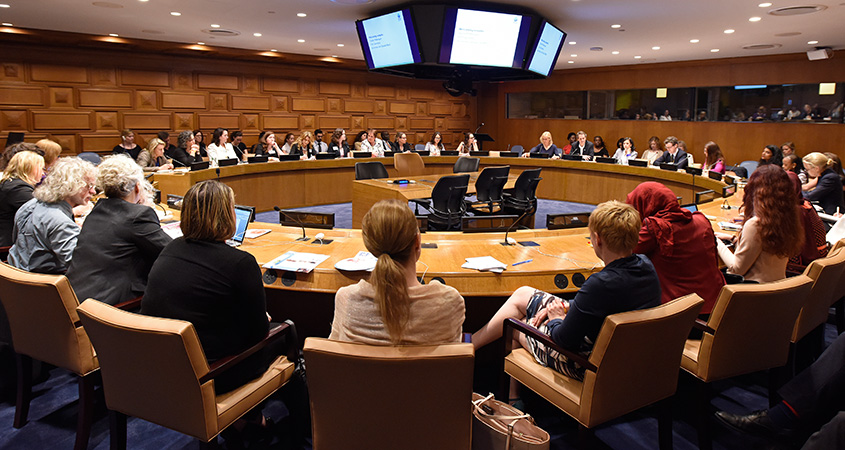17 Goals. 193 Countries. 15 Years. One Movement.
The Sustainable Development Goals (SDGs) provide us with an opportunity to focus our efforts, to work together, and to respond to the needs of those who have historically been left behind. This is a movement driven not only by the United Nations, or by individual countries, but by everyone, everywhere. Whether you’re part of an organization, a company, an agency, a government, a university, an NGO or a community, these goals are a call to action and a guiding light for human development.

Amina J. Mohammed
WSSCC Chair, Minister of Environment, Federal Republic of Nigeria
Clean Water and Sanitation, SDG Goal 6, is one of the few cross-cutting SDGs without whose achievement the SDGs on Nutrition, Health, Education, Gender Equality, Environment, Good Jobs and Sustainable Cities cannot be achieved. Poverty elimination is also impossible without access to and use of safe water and sanitation. For too long, sanitation and hygiene have been taboo topics, often forgotten in development work, despite the 2.4 billion people on the planet who still lack access to them. In international fora and elsewhere, these issues are now front and center, an acknowledgement that the essential links between water, sanitation and hygiene (WASH) and health, education, nutrition, the workplace, human rights, gender and the environment cannot be ignored.
In this report, we see that hygiene indisputably plays an important role in everyone’s life, whether you’re from Sweden or Nigeria, Sri Lanka or the Netherlands, the US or China. Hygiene affects how you perform at work, how others perceive you and most importantly, how you feel about yourself. Those who suffer most from a lack of safe sanitation and hygiene are the most vulnerable: women and girls, the elderly, the disabled, sanitation workers, migrants, and those living in rural areas, especially in Sub-Saharan Africa and South and Southeast Asia. The need for information, community involvement and people-centered policies and facilities is essential. Despite the great work being done to address the hygiene crisis, the challenges remain enormous and there is so much more work to be done.
Since 2014, WSSCC has partnered with Essity (formerly SCA) to break the silence on sanitation and hygiene issues worldwide, to fill evidence gaps on hygiene habits and perspectives, and to share potential solutions to these taboo-ridden issues. In 2015, WSSCC and our company ran several seminars and training sessions in Africa, Asia, Europe and North America to discuss Menstrual Hygiene Management and the silent stigma that surrounds menstruation in many parts of the world.
In 2017, the partnership has moved into a new phase and is now focused on research, education and advocacy. This report marks the beginning of a partnership not only focused on the impact on Goal 6, but on working together collaboratively and substantively - a key element of SDG Goal 17: Partnerships. Without building the foundation together, without responding to basic human needs like safe sanitation and hygiene, it is clear that we cannot attempt to reach our other goals.
As we look to the future, we imagine a world where social justice and dignity prevail for everyone, everywhere. We imagine a world where the most disadvantaged and marginalized have a voice and agency over their own lives, where there are no barriers to the fulfillment of human rights. How do we get there? We have the SDGs. We have a global commitment. We have the expertise. Now is the time for taking action.
Amina J. Mohammed
WSSCC Chair, Minister of Environment, Federal Republic of Nigeria

In May 2015, we held a joint hygiene seminar with WSSCC in the United Nations headquarters in New York.
